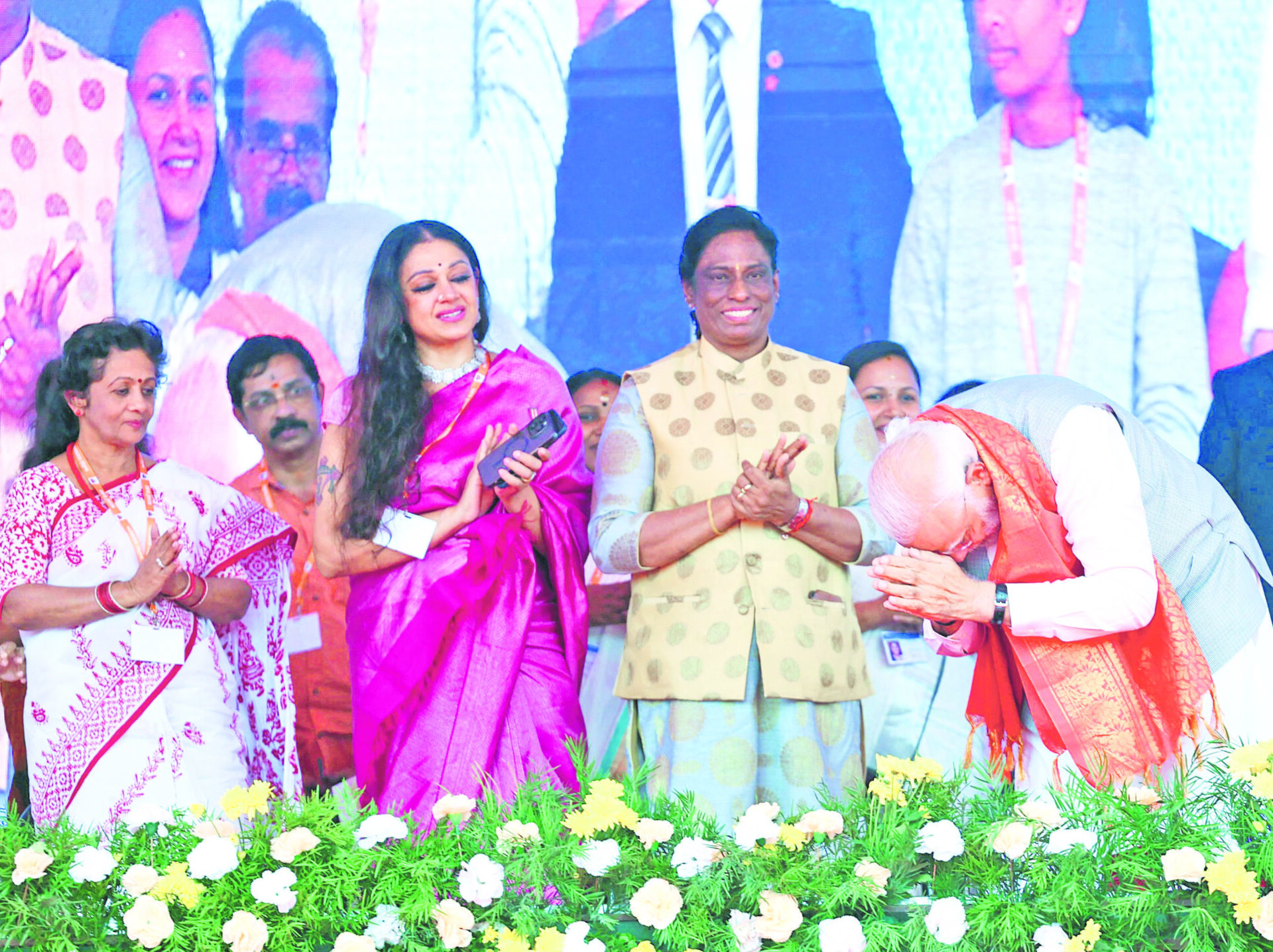Those who share the stage with the Prime Minister are being subjected to online harassment and trolling.
Kerala has been experiencing a concerning increase in incidents of cyberbullying targeting celebrities. On the auspicious day of Paush Shukla, Kurma Dwadashi, Vikram Samvat 2080, India witnessed the Prana Prathista ceremony of Ram Lalla in Ayodhya. This significant event was witnessed by a large number of people through various online and social media platforms. Many celebrities attended the event in Ayodhya and expressed their greetings through their social media accounts. However, in Kerala, such celebrities faced online bullying for supporting the Ram Lalla event.
Cyberbullying has become increasingly prevalent in Kerala, particularly by the political left-wing ecosystem of the state. Individuals who express their opinions firmly, have been targeted and attacked, especially following the visits of Prime Minister Narendra Modi to Kerala. Over the course of nine months, the Prime Minister has visited the state three times, with each visit attracting a large number of enthusiastic supporters. However, those who shared the stage with the Prime Minister were subjected to online harassment and trolling. Notable artists such as Navya Nair, Aparna Balamurali and others faced such attacks. Even award-winning actress Shobana, who attended one such event for women and described it as the largest women’s gathering she had ever witnessed, was heavily criticised and trolled on social media. Following which, the ruling Communist Party of India (Marxist) had to issue a supportive statement for the actress as a response to public anger directed at such trolling. Prominent figures like singer K.S. Chithra, actress-director Revathi, Veena Nair, Unni Mukundan, and many others have been targeted for their posts on the consecration of Ram Lalla. Unfortunately, cyberbullying has become a norm in Kerala for those who do not align with the ruling political establishment.
In India, laws exist to address cyberbullying, although there is no specific definition for the offence. Certain sections of the Information Technology Act, such as Section 66A, used to deal with offensive messages sent through communication services. However, this section was invalidated by the Supreme Court in the Shreya Singhal vs Union of India case, citing the right to freedom of speech. The Indian penal code also has provisions to address cyberbullying, such as Section 503, which deals with sending threatening messages via emails, and Section 500, which deals with abusive emails. IPC Section 354D defines stalking and its associated penalties. The newly passed Bharatiya Nyaya Sanhita includes Section 78, which defines stalking and also encompasses online stalking as an offence. Section 70 of BNS provides for offence against the modesty of women. While cybercrimes are considered organised crimes under the new law, there is still a need for clarity regarding cyberbullying.
The results of a survey conducted by the United Nations indicate that a significant number of individuals believe that the only effective way to combat cyberbullying is through government intervention and legislation. According to reports by UN Women, a disturbingly high percentage of women and girls, ranging from 16% to 58%, have become targets of online violence. Just imagine the plight of those who are victimized for simply sharing the dais with the Prime Minister of India or expressing their religious beliefs on social media. And all this occurs in a state that claims to uphold the principles of freedom of speech and expression. In 2021, 19 cases of cyber stalking or bullying were reported in Kerala.
However, in 2022, this number escalated to 45 cases registered under Section 354D of the Indian Penal Code and other relevant laws. Unfortunately, the majority of victims choose not to come forward and voice their anguish publicly. Nevertheless, it is imperative that acts of defamation and slander against the modesty of women be treated as criminal offence. The Government of Kerala must organise awareness sessions on cyberbullying and cyber stalking. It is crucial to motivate individuals to step forward and file complaints. While cybercrimes impact the physical realm, cyberbullying and cyber stalking invade the mental space
Adarsh Kuniyillam is a parliamentary and policy analyst.

